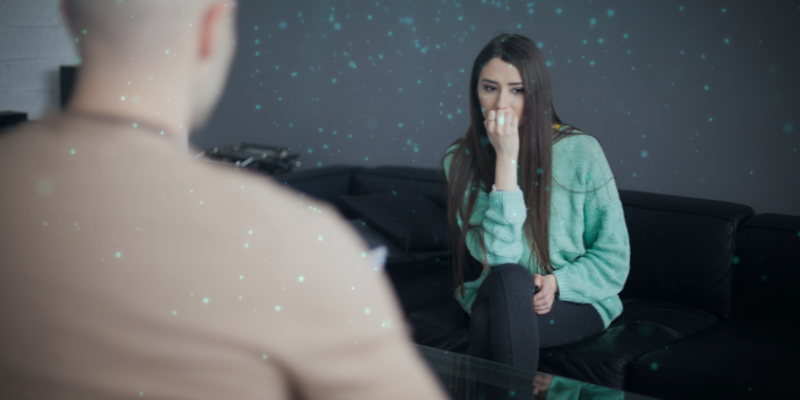
Anxiety and depression are real illnesses. If you or a loved one suffers with either of these potentially debilitating conditions, you are not alone.
- Over 40 million Americans struggle with anxiety disorders, roughly 18 percent of the population, and only one-third of those suffering will receive treatment.
- The World Health Organization projects that major depression will be the leading cause of disease burden by the year 2030.
- Anxiety disorders are the most common class of mental disorders present in the general population.
Left untreated, anxiety and depression can have serious personal and social consequences, including:
- Health problems
- Failure to reach your full potential at school or work
- Low self-esteem
- Chronic stress
- Disability
- Family conflict
- Withdrawal from social activities
- Alcohol and substance abuse
- Disturbing thoughts
- Legal and criminal problems
- And sometimes, suicide (In fact, the risk for suicide in people with depression is more than 20 times higher)
Anxiety and depression are not the results of character flaws or personal weakness; rather, they are related to biological problems in the brain.
Brain Systems Involved with Anxiety and Depression
The brain is a very complex organ. Through SPECT brain imaging at the Amen Clinics, we have found that there are five major systems in the brain involved with how we feel, what we think and how we act or behave.
Abnormalities in any of these five systems – including combinations – can contribute to the symptoms of anxiety and depression.
- The Basal Ganglia: Allows for smooth integration of emotions, thoughts, and physical movement.
- The Deep Limbic System: Sets the emotional tone of your mind, stores emotional memories, controls motivation and appetite.
- The Anterior Cingulate Gyrus: Responsible for cognitive flexibility, this is your ability to go with the flow, adapt to change, and deal successfully with new problems.
- The Temporal Lobes: The storage of memories and images that help us define our sense of ourselves.
- The Prefrontal Cortex: The “Executive Center” of the brain.
The 7 Types of Anxiety and Depression
One common misconception is that anxiety and depression are separate problems. However, research had demonstrated that anxiety and depression occur together 75 percent of the time.
Another misconception is the belief that anxiety and depression are simple and straightforward disorders. Through SPECT brain imaging of tens of thousands of people, the Amen Clinic has described 7 different types of anxiety and depression and knowing which type you have is critical to getting the right help.
Treatment For all Types of Anxiety and Depression
Rule out Medical Causes
Thyroid abnormalities, anemia, sleep apnea, brain injuries, vitamin and nutritional deficiencies, and certain medications can all cause problems related to anxiety and depression. Getting a thorough physical exam is one of the first, most important, steps.
Exercise
All types benefit from exercise because exercise boosts blood flow to the brain. Exercise also increases your “feel good” hormone, serotonin, availability in the brain. In a study comparing exercise to common antidepressant medication, the two were equally effective after twelve weeks. However, exercise was actually more effective than antidepressants after ten months.
Kill Your ANTs
People with anxiety and depression are often filled with automatic negative thoughts (ANTs). These are the views and judgments that automatically come into your mind and ruin your day. Learning how to correct these negative thought patterns has been found to be as effective as antidepressant medication without any side effects.
Amen Clinics has helped tens of thousands of people with anxiety and depression from all over the world and can help you, too. To learn more or schedule a comprehensive evaluation, contact the Amen Clinics Care Center today online or call (888) 288-9834.





Morning! I just read this article. Have been diagnosed with Depression, Anxiety and Panic Disorder, Bipolar.. At one point, they even said I had Passive-Agressive Personality. Then, PTSD. I get all my medical treatment from the VA. Needless to say life has been very rough. Have had these conditions for close to 44 years. Would like to get an evaluation from your clinic, but don’t know if I can actually afford it. I live in Oklahoma.
Comment by Delia Rimes — January 28, 2017 @ 2:59 AM
Delia, curious if anyone contacted you back.
Comment by amy — January 31, 2017 @ 3:59 PM
They probably want contact Delia. I am not sure if they even read these. Their examinations are expensive. My mother is 81 with some problems and I want to have her evaluate to better her lifestyle but you must be wealthy to get the care needed.
Comment by Antrelle Manning — August 9, 2017 @ 11:34 AM
Follow the brain diet low processed food plan!! Supplement with quality like Reliv.
Comment by Melanie Lewis — September 17, 2017 @ 2:27 PM
Healing and decreasing depression can be done with hair detangling. We have seen that when we loosen your hair, we loosen your mind: In all honesty, as you loosen your hair, you detangle your mind. A depressed person may have so many issues clogging up their brain and life and detangling something as difficult as matted; tangled hair can help too. Did you know that the mind is like a web of hair strands knotted together? So literally you can detangle your hair and your mind too.
Start feeling alive and worthy: As you detangle your hair, the process makes you feel alive and worthy of yourself. You are open to the chance that you can make something so hard seem easy and beautiful. You begin to gain control of your emotions as something that can be understood and tamed. This feeling can drastically help reduce depression.
Always remember that ALL THINGS ARE POSSIBLE WITH GOD….Luke 1:37. Only believe and Jesus will help your faith to be strengthened.
Comment by mattedtangledhairsite — October 19, 2017 @ 8:33 AM
I have a question for Dr. Amen or someone else who works at the center. I have never heard the phrase “temporal lobe depression” before and was wondering if someone could explain it. I understand temporal lobe epilepsy but not temporal lobe depression.
Comment by Suzanne Feuer — May 22, 2019 @ 4:58 AM